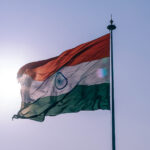March 26, 2025
Dhaka – A recent statement from the leader of the National Civil Party (NCP) Hasnat Abdullah has sparked a major political debate in Bangladesh, adding new complexity to the country’s already volatile political landscape. Hasnat claims to be working on the creation of the “Awami League”, part of a broader “Awami League must come back” strategy, allegedly with the support of India and the military, to many people. It’s not just his statement that attracted people’s attention, but also how eyebrows were delivered. His remarks not only exposed deeper political tensions, but also raised key questions about the future of democratic politics in Bangladesh.
The ban on the needs of major political parties raises fundamental questions about the limitations of democratic competition and the long-term consequences of political exclusion.
To understand the weight of Hasnat’s comments, it is necessary to reflect on the origins of the current political turmoil. Massive movements from July to August last year forced Sheikh Hasina to lose power due to public frustrations over the government and corruption. The movement is based on four key requirements: the abolition of the quota system in public services; the resignation of Sheikh Hasina; the restoration of democratic norms; and the establishment of a political balance within the government. The protests are characterized by public mobilization and sacrifice, with protesters facing violence and government-funded repression under the push of political reform.
However, it is important to note that during the massive campaign in July, the call for a total ban on the AWAMI alliance. The essence of the movement is to restore political balance and ensure accountability, rather than to eliminate political diversity. The movement’s broad support base reflects a shared commitment to democratic principles rather than a call for political revenge. This raises an important question: if the goal is to eliminate the Awami Alliance as a political force, will the movement attract the same public support? The movement seeks political reform, not political phase-out.
Despite the failure of Sheikh Hasina’s government and the departure of several senior Awami Alliance leaders, the party still received some support in Bangladesh. In every competitive election, not in elections held under Sheikh Hasina, the party has been receiving at least 35% of the popular vote. This is an important number; it reflects the party’s historical, social and political roots. Political support for the AWAMI coalition goes beyond individual leaders; it embeds into the party’s historical legacy, especially in the liberation struggle in Bangladesh. Indeed, Hasina destroyed the party’s hierarchy, but it was still a powerful force.
Can such a deeply entrenched political entity be forbidden? Even if the government wants to ban the Awami alliance, its political foundation will not disappear overnight. Political bans have historically fueled underground movements and radicalization, rather than eliminating political influence. Furthermore, not all Awami Alliance leaders are involved in corruption or human rights violations. Is it reasonable, or even reasonable, to deny their political participation simply because of their party affiliation? Political responsibility should be directed at individual misconduct (can be tried and punished) rather than dismantling the entire political structure.
History provides valuable lessons for the consequences of political bans. After the 2013 military coup in Egypt, the Muslim Brotherhood was declared illegal and prohibited from participating in political participation. The ban has not returned to stability, triggering a new wave of political violence and radicalization. The political vacuum left by the dissolution of the Brotherhood has led to greater instability and national repression. Bangladesh faces similar risks. Banning the AWAMI coalition could boost its supporters’ alignment with extremist groups or form underground movements, thus exacerbating turmoil and prolonged political unrest. Political bans tend to create martyrs rather than resolve political conflicts. The forced disbandment of the AWAMI coalition may arouse sympathy from its supporters and strengthen opposition to the interim government.
From a legal perspective, the prohibition of the AWAMI alliance will directly conflict with the principles of domestic and international democracy. Bangladesh is a signatory to the International Civil and Political Rights (ICCPR), which guarantees the right to political connection. The ban on major political parties will violate these commitments and will arouse sharp criticism from the international community. At home, the rights of political associations are protected by the Constitution – especially under Articles 37, 38 and 39. Any attempt to ban the AWAMI alliance will face serious constitutional challenges and undermine the legitimacy of the provisional government. This will also contradict the democratic diversity principle that the July movement is trying to restore.
The call to ban the AWAMI coalition also raises questions about the political motivation behind such dramatic statements. The July Uprising united a broad coalition of political and social forces, but this unification seemed to be disintegrating. Hasnat’s statement may be an attempt to regain political significance by attracting opposition to the American alliance. In addition, the proposal can reflect the internal cracks inside the NCP itself. If Hasnat’s faction works to consolidate power, targeting the Awami League could become a unified strategy for rally support. But the strategy has the potential to alienate moderate voters who support the July uprising calling for political responsibility rather than political revenge.
If banning the AWAMI alliance is not the solution, what is it? The answer lies in political responsibility rather than political purge. Leaders of the AWAMI alliance involving corruption, human rights violations and political violence should be prosecuted through the judicial system. Under the existing legal framework, financial crimes including bank fraud and smuggling must be investigated and punished. Democratic reforms aimed at strengthening political transparency and accountability should be given priority. Political elimination rarely leads to long-term stability. Accountability, not erasure, is the basis of democratic governance. Political competition and ideological diversity are crucial to maintaining a democratic balance.
Although Jamaat-e-Islami has not been banned during most of Sheikh Hasina’s tenure, the Awami League has long been banning the idea that Jamaat was a political tool. Ultimately, when it did take action to ban Jamatt, the political outcome was not what the party expected. Hasnat called for banning the AWAMI alliance to be the same risk. If the Awami alliance is banned, it may become a political martyr. Public sympathy can turn to the party, and the political vacuum created by its dissolution could further undermine Bangladesh’s stability. Banning the AWAMI alliance will not eliminate its deep political roots; instead, it may push its supporters towards greater political mobilization. Political responsibility (not political elimination) is the key to resolving the country’s political crisis.












